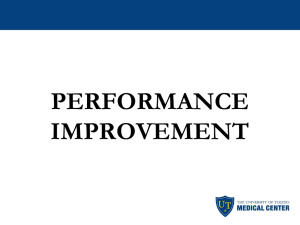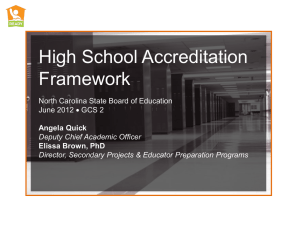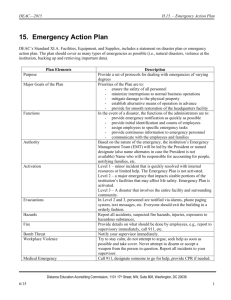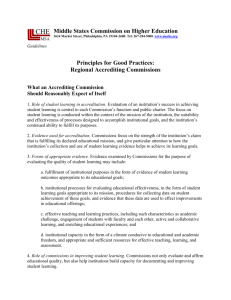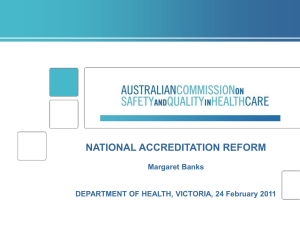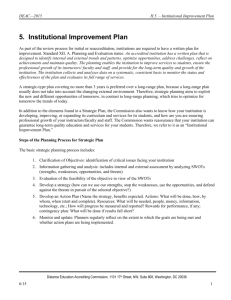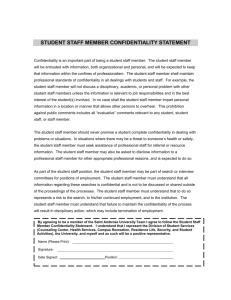I.3. A Special Message to Evaluators on Confidentiality
advertisement
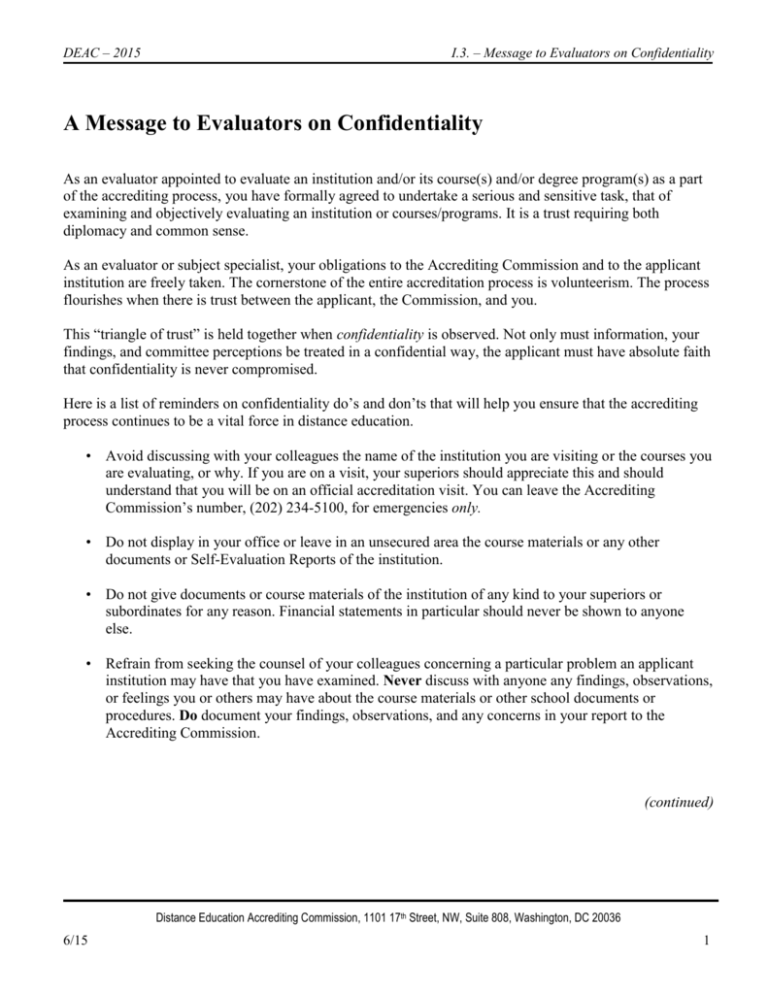
DEAC – 2015 I.3. – Message to Evaluators on Confidentiality A Message to Evaluators on Confidentiality As an evaluator appointed to evaluate an institution and/or its course(s) and/or degree program(s) as a part of the accrediting process, you have formally agreed to undertake a serious and sensitive task, that of examining and objectively evaluating an institution or courses/programs. It is a trust requiring both diplomacy and common sense. As an evaluator or subject specialist, your obligations to the Accrediting Commission and to the applicant institution are freely taken. The cornerstone of the entire accreditation process is volunteerism. The process flourishes when there is trust between the applicant, the Commission, and you. This “triangle of trust” is held together when confidentiality is observed. Not only must information, your findings, and committee perceptions be treated in a confidential way, the applicant must have absolute faith that confidentiality is never compromised. Here is a list of reminders on confidentiality do’s and don’ts that will help you ensure that the accrediting process continues to be a vital force in distance education. • Avoid discussing with your colleagues the name of the institution you are visiting or the courses you are evaluating, or why. If you are on a visit, your superiors should appreciate this and should understand that you will be on an official accreditation visit. You can leave the Accrediting Commission’s number, (202) 234-5100, for emergencies only. • Do not display in your office or leave in an unsecured area the course materials or any other documents or Self-Evaluation Reports of the institution. • Do not give documents or course materials of the institution of any kind to your superiors or subordinates for any reason. Financial statements in particular should never be shown to anyone else. • Refrain from seeking the counsel of your colleagues concerning a particular problem an applicant institution may have that you have examined. Never discuss with anyone any findings, observations, or feelings you or others may have about the course materials or other school documents or procedures. Do document your findings, observations, and any concerns in your report to the Accrediting Commission. (continued) Distance Education Accrediting Commission, 1101 17th Street, NW, Suite 808, Washington, DC 20036 6/15 1 I.3. – Message to Evaluators on Confidentiality DEAC - 2015 • Destroy all reports, data, and materials on the institution and the evaluation when you have submitted your report and have been notified by the Commission that your report has been received. Never keep the institution’s self-evaluation materials or subject specialist reports around for reference. Be sure computer disks or computer files that have texts of your reports are erased or destroyed. • Do not discuss on the telephone your role or your activities as a Commission evaluator or subject specialists with persons who identify themselves as “investigators.” You have no way to verify who they really are. He/she may be a competitor! Refer such people to the Accrediting Commission staff in Washington, D.C. The confidentiality of the accrediting process depends on you. Treat accrediting information and documents with the same confidentiality you would like to have other subject specialists or evaluators handle your institution’s course materials or documents. If at any time during your review you have any questions, please do not hesitate to call and speak with a staff member of the Accrediting Commission. Distance Education Accrediting Commission, 1101 17th Street, NW, Suite 808, Washington, DC 20036 2 6/15

